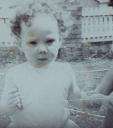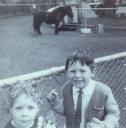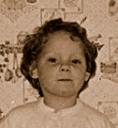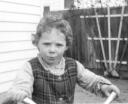Autism, trauma and remnants of Refridgerator Mother theory.
  I recently got a comment on one of my blogs. It was from a staunch supporter of a psychoanalytic approach to autism, an approach which held that autism was caused by trauma in the womb or due to a difficult birth (and could be treated through ‘rebirthing‘ and the debunked 1970s autism treatment of ‘holding therapy‘. This ‘primal pain’ theory includes the idea that the autistic child has become autistic from things as vast as chemical assaults by smoking and substance abusing mothers, by mothers experiencing mental illness or abuse or other trauma during pregnancy or who feel negativity or indifference about the child they are carrying or were effected by mother’s suffering post natal depression. He wanted to raise with me the idea that I was actually a “broken normal”. This is our conversation: Tommi Olanne Says:
 I recently got a comment on one of my blogs. It was from a staunch supporter of a psychoanalytic approach to autism, an approach which held that autism was caused by trauma in the womb or due to a difficult birth (and could be treated through ‘rebirthing‘ and the debunked 1970s autism treatment of ‘holding therapy‘. This ‘primal pain’ theory includes the idea that the autistic child has become autistic from things as vast as chemical assaults by smoking and substance abusing mothers, by mothers experiencing mental illness or abuse or other trauma during pregnancy or who feel negativity or indifference about the child they are carrying or were effected by mother’s suffering post natal depression. He wanted to raise with me the idea that I was actually a “broken normal”. This is our conversation: Tommi Olanne Says:
I still don’t understand why do you insist you’re not a broken normal. You don’t really know. You only think you know.
Donna Says:
Hi Tommi,
 Â I understand your theories, the whole psychoanalysis and birth trauma idea, but every case of autism is different. Some people become diagnosed autistic after disintegrative disorder at age 2-3 before which development was usual. Some of these cases were encephalitis, so nothing to do with birth trauma.
 I understand your theories, the whole psychoanalysis and birth trauma idea, but every case of autism is different. Some people become diagnosed autistic after disintegrative disorder at age 2-3 before which development was usual. Some of these cases were encephalitis, so nothing to do with birth trauma.
 There are also those with autism who have been recently found to be the offspring of first cousin marriages in which both strengths and genetic weakening were multiplied resulting in things like gut, immune, metabolic and co-morbid disorders which overwhelm development in the first years. Again, this is genetics and not birth trauma. My father’s mother was the offspring of first cousins who in turn were also the children of first cousins. Diabetes, Coeliac, ADHD, Bipolar, Dyslexia, Social Phobia, Asperger’s and Autism have all been diagnosed on my father’s mother’s side and more recently ASD has been found on his father’s side too. So he brought his own predispositions to the genetics table.
There are also those with autism who have been recently found to be the offspring of first cousin marriages in which both strengths and genetic weakening were multiplied resulting in things like gut, immune, metabolic and co-morbid disorders which overwhelm development in the first years. Again, this is genetics and not birth trauma. My father’s mother was the offspring of first cousins who in turn were also the children of first cousins. Diabetes, Coeliac, ADHD, Bipolar, Dyslexia, Social Phobia, Asperger’s and Autism have all been diagnosed on my father’s mother’s side and more recently ASD has been found on his father’s side too. So he brought his own predispositions to the genetics table.
 On my mother’s side there was substance abuse and she was certainly dealing with her own major traumas before and after my birth. It’s possible she may have had untreated post natal depression on top of her existing challenges. So your theory of a child being influenced by a mother’s severe chronic stress and what her own body goes through may well be true for half of my case and there are many children with fetal alcohol effect who have autistic traits and recent research has shown that children breathing second hand smoke have poorer language processing so who knows the developmental effect yet of being born to a mother who is also a heavy smoker. However, a strong inter-generational maternal history of familial substance abuse, suicides, agoraphobia and OCD also fail to indicate typical developmental patterns.
On my mother’s side there was substance abuse and she was certainly dealing with her own major traumas before and after my birth. It’s possible she may have had untreated post natal depression on top of her existing challenges. So your theory of a child being influenced by a mother’s severe chronic stress and what her own body goes through may well be true for half of my case and there are many children with fetal alcohol effect who have autistic traits and recent research has shown that children breathing second hand smoke have poorer language processing so who knows the developmental effect yet of being born to a mother who is also a heavy smoker. However, a strong inter-generational maternal history of familial substance abuse, suicides, agoraphobia and OCD also fail to indicate typical developmental patterns.
 Added to this, I had jaundice at 6 months and chronic infections from 6 months, and was ultimately diagnosed with and treated for two primary immune deficiencies (coeliac and diabetes already ran on my father’s side and colitis on my mothers). Against that health background I was, like many children in the 60s, taken to catch measles and mumps when I was 2. But with no functioning immune system, I finally fought off the measles I’d been carrying after getting normal immune function at age 36. So 34 years of carrying measles is not good for the brain at all.
Added to this, I had jaundice at 6 months and chronic infections from 6 months, and was ultimately diagnosed with and treated for two primary immune deficiencies (coeliac and diabetes already ran on my father’s side and colitis on my mothers). Against that health background I was, like many children in the 60s, taken to catch measles and mumps when I was 2. But with no functioning immune system, I finally fought off the measles I’d been carrying after getting normal immune function at age 36. So 34 years of carrying measles is not good for the brain at all.
 And I also then dealt with the loss of the welfare sister who’d cared for me from 6 months to 2 and a half, then the death and loss of my grandparents (who were my primary carers) at the age of 4. My view is that degree of loss has got to effect attachments, especially in a face blind, meaning deaf, immune compromised child who is already very developmentally compromised.
And I also then dealt with the loss of the welfare sister who’d cared for me from 6 months to 2 and a half, then the death and loss of my grandparents (who were my primary carers) at the age of 4. My view is that degree of loss has got to effect attachments, especially in a face blind, meaning deaf, immune compromised child who is already very developmentally compromised.
 It may equally be a far more holistic picture in which a combination of things came together – genetic weakening including gut/immune/metabolic disorders, genetic damage which may have already effected three generations of alcoholic mothers and their children due to inter-generational substance abuse, Acquired Brain Injury from viral infection, and topped off with trauma relating to loss and abuse. So, we clearly can’t put all that down to a theory of primal pain and birth trauma.
It may equally be a far more holistic picture in which a combination of things came together – genetic weakening including gut/immune/metabolic disorders, genetic damage which may have already effected three generations of alcoholic mothers and their children due to inter-generational substance abuse, Acquired Brain Injury from viral infection, and topped off with trauma relating to loss and abuse. So, we clearly can’t put all that down to a theory of primal pain and birth trauma.
 So clearly my history is very layered, but as an autism consultant I’ve found many children diagnosed with autism with similarly layered histories none of which means those events alone caused their child’s autism.
So clearly my history is very layered, but as an autism consultant I’ve found many children diagnosed with autism with similarly layered histories none of which means those events alone caused their child’s autism.
For example it’s not unusual for me to meet a child who became progressively more ‘autistic’ after a big birthday party (that one surprised me), after a parent escaped a violent partner or the marriage broke down, after there was one of more house moves in succession, or a after younger sibling was born before they were 3.  What we may well be seeing there is how things like learned helplessness, Selective Mutism, Separation Anxiety, PTSD, childhood depression, catatonic depression, progressive Exposure Anxiety are deemed part of ‘the autism’. And it might actually help us to look at things like 2nd hand stress, how a young child ‘catch’ their parents untreated depression or what the impact of a parent’s anxiety disorder is upon a child who has not yet developed their own independent identity and may still feel the mother’s feelings as their own. That doesn’t mean this would be so for all autistic children but nor can we sweepingly presume that just because someone is autistic it would not be possible for some.
Sometimes we have to dare to see more holistically, more 3D. It may well be that once we dissect out all the contributing causes which contributed to ‘autistic presentation’ and autistic patterns of development, there is nothing called ‘autism’ left except personality.
Donna Williams
http://www.donnawilliams.net

Sometimes I dont think people think before they post? Sure it is good to have theories on things, but honestly this one I do find upsetting. A mother or a parent in general feels guilty enough when finding out their child has a disability or in my case having 2 sons with autism. You start to go through every stage of pregnacy and threat over things that you may have done wrong to make this happen. You are constantly blaming yourself. You think the world is against you and all you really want is for a happy and healthy child.
For my first pregnancy I was the happiest and healthiest I had been in years. I loved every moment of it. Although the idea of having a baby so young scared me, i soon adapted and never looked back. There was never any trauma or ill feelings towards the baby to be, and I never regretted my decision to have him.
My second pregnancy was very different from the first, but again I was healthy. Loved the idea of having another baby. I couldnt wait to meet him or her for the first time.
I am surprised there are still people out there that strongly believe the refridgerator Mum theory. It is sad. Honestly some people need a life. Dont always assume you know someone elses case without even knowing them.
Hi Alex,
in fact I DO NOT support the refrigerator mother theory at all. The article is a RESPONSE to someone who sent me stuff about psychoanalytic theory and HIS presumption that autism was due to birth trauma etc. What I’m replying is in fact debunking his theory whilst being open minded that in MY OWN case SOME loss, neglect, trauma and exposure to toxins before birth as well as being born to someone unable to manage (who may have had her own fruit salad) may have contributed to some perceptual, cognitive, immune system issues and immature nervous system associated with emotional dysregulation.
I have ALSO told him that most of the ‘autism related fruit salad’ I was effected by ran on my father’s side and may have been complicated by being an immune deficient child who caught measles and mumps at age 2. So I have not assumed I know everyone else’s case, for all fruit salads and all family histories and environments and personality factors are different. I have stated my own case in RESPONSE to the person writing in support of HIS theory that birth trauma causes autism.
ah, yes, I have written of cases where children diagnosed with autism appeared to have symptoms of learned helplessness, separation anxiety, selective mutism, catatonic depression and developmental regression onset or become much more severe following significant family disruption. I’m sure there’s cases where no such events contributed but it would be biased of me not to acknowledge those cases where the family themselves had recognised such events were pivotal.
And I think that’s humanising. To say that kids are immune to all that or that learned helplessness, anxiety disorders, depression, selective mutism etc can’t contribute to the autistic presentation of SOME children is to be too attached to a one size fits all portrayal of autism.
And recognising that traumatising events have impacted is not the same as saying these are sole causes. It may well be that some cases of autism require several events to compound before a predisposition to autism manifests overtly.
Hi Donna
I hope you didn’t think I was responding to you. I knew you didnt agree with this persons theory. I just hate how people on the outside world looking in can quickly judge and tell you how and why things happen when really they have no idea.
totally agree with you.
🙂
Wasn’t it Betleheim(sorry I don’t know the correct spelling) who came up wih this awful theory of refrigerator mothers? As I recall he has since been exposed as a fraud . So why does anyone continue to give this the time of day? Why even bother debate this pile of steaming poo!? I am so sick and tired of everyone blaming it on the mother. I get it that you don’t support it but why even debate with these people?
Also my pregnancies were fine- I didn’t even drink coffee and I had natural births and both my children are autistic and both had very different onsets. However when I look into my family history I can see definite strong traits of autism.
As a parent I work harder and do morefor my children than most parents of neurotyypical children. Im not looking for a medal- its just a fact of life- thats the way it has to be, Often I am abused by the public as being a lousy mother with undisciplined children. It seems just the easy way out to blame it on the mother. Funny that- not the father just the mother. Even now the way government funding is set up for intervention it is about educating the parents to work with their child(replacing actually structured therapy)and the parents using funding to find the therapy themselves. Its just a just copout for the many hours of therapies and big $$$ needed. Put it back on the parents, which really means for most of us the mothers.
And for the record I don’t have the time for learned helplessness with my kids. They are expected to do it for themselves. Dont be be too hard on the parents Donna most are doing the best they can. Sadly you will find dysfuncional families in all walks of life with all kinds of children.
Yep, I see all you are saying, I see the ignorant pratts in the supermarkets blaming mothers for things they know nothing about, my mother got that stuff constantly and she was agoraphobic and I wouldn’t be surprised if being judged by public contributed.
I also don’t think I’m hard on the parents. I see their humanness, their humanity, their foibles and the ways they rise above what would make others crumble in the first 30 mins.
I also meet those who do and those who don’t promote learned helplessness and I meet families who don’t then teachers who do!!!
and you are right about the big buck therapies. So much of what’s useful costs nothing but nobody rubber stamps it, reinforces it. gestural signing, a few mirrors, some colored light bulbs, a mattress to jump on doing rhythm games, an indirectly confrontational approach, rough and tumble, home made obstacle courses, the list goes on and on, but nobody studies these individualised approaches so they never get rubber stamped so everyone lines up like sheep for the next fad and, yes, they are guilted into getting onto that production line and guilted out of getting off.
totally right dysfunctional families have all kinds of children.
Logically there must be a reason that autism and sensory integration problems go together. Wouldn’t sensory integration problems put a child at a greater risk of experiencing a negative sensory experience as a child, perhaps unknown to the parents, even birth? It is not clear that the genetics for autism cause first the social skills deficit. The social skills deficit could arise as a result of the interaction of other autistic symptoms with the environment. In fact the “regression” of developmental skills seen in autism would be consistent with this. You can’t just “unlearn” something, but adult trauma victims will often withdraw and stop doing things, it makes sense that autism is a similar reaction in infants. Children who grow up with sensory issues but no autism could have the same genes as autistics but lucked out and didn’t run into a traumatic experience.
As for other forms such as Asperger’s? This could be a whole different creature. Maybe not even a disorder, simply a strong propensity for daydreaming long about subjects of interest that results in limited social contact and consequently limited understanding of social skills as the child ages. Alternatively this could be a reaction to trauma suffered at a later age. Even either one depending on the individual?
These are theories of course but there must be an answer to the question why do social skills deficits, preference for sameness and routine, and sensory defensiveness go together so often? Why do we see no socially impaired undersensitive novelty-cravers?